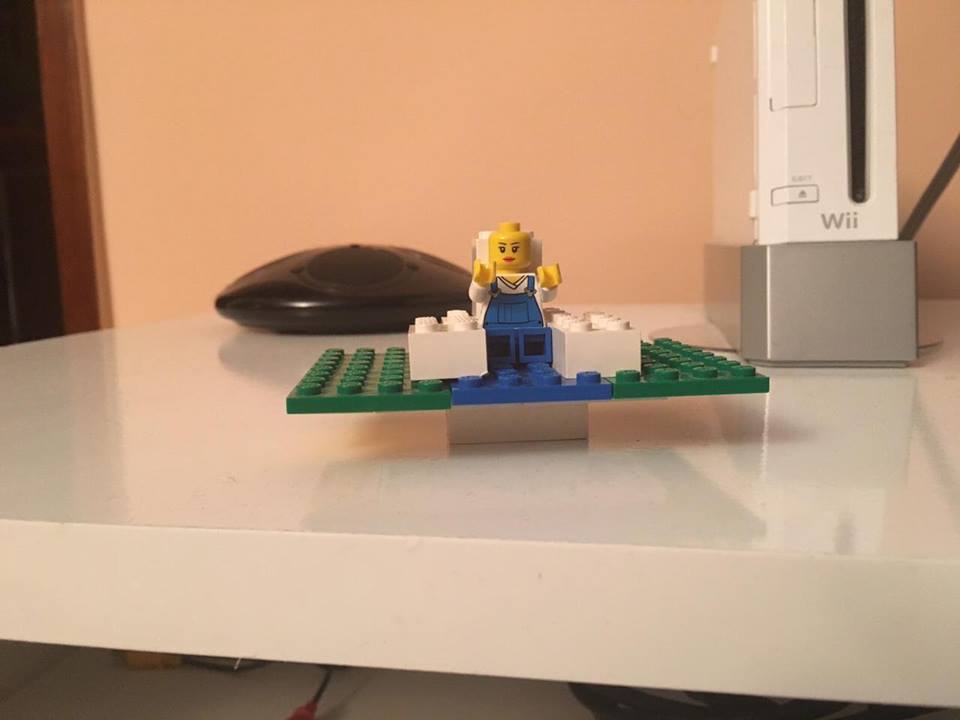Political and football allegiance are essential ingredients of the formative years of young children in Croatia.
French and Manchester United genius Eric Cantona was one of the most talented players to grace Old Trafford, but he has become almost as famous for his actions and words off the pitch. Among many of his memorable quotes, this one has been following me around in recent days:
“You can change your wife, your politics, your religion, but never, never can you change your favorite football team.”
As an Aston Villa fan, I can confirm the truth of Cantona's words regarding the football. It has been a painful season at the bottom of the Premier League, but as I wander around Croatia in the post-election aftermath, I wonder if it really is possible to change one's politics, as the great man suggests.

Ours is one of the very few non-political households in Croatia, a country where politics seems to be discussed more than any of the 95 countries I have visited. The political theme starts early in life, something I was reminded of this week when my youngest daughter, aged just 7, came home from school and mentioned a friend 'who was HDZ' and another 'who was SDP' (things I also heard at kindergarten). She had no idea what SDP or HDZ actually were, but it seems that many of her peers had adopted their political football team for life, in addition to Hajduk on the pitch.
My older daughter, 9, saw the ridiculous video from the Josipovic campaign, below, declaring the former president to be very silly in the video. I asked her to name any politicians she could recognise, knowing that the average adult British worker could probably name and recognise no more than half a dozen, and a 9 year-old hardly any.
Starting with the mayors, we had Milan Bandic (Zagreb), Ivo Baldasar (Split) and Niksa Peronja (Jelsa), former president Josipovic, former prime ministers Sanadar and Kosor, current players Milanovic, Karamarko, Petrov and Kolinda. "Oh and that new guy from Canada, who calls us citizens buildings" - a reference to a linguistic slip by new Prime Minister Tim Oreskovic.
Poliltical allegiance to the party - whatever the current policies - is as engrained as Cantona's football support, it seems, and what makes this all the more interesting - to me at least - is how little the main parties' die-hard actually support know about the party's policies. As an Aston Villa supporter this season, I would love to transfer my allegiance to nearby Leicester City, who not only lead the table, but are playing with an entertaining style and freedom that we have not seen at Villa Park for almost 35 years.
It seems to be the same with a large percentage of the Croatian electorate. Given the recent history in the country, it is perhaps understandable that opinions are so entrenched, suspicion and animosity so intense, and the idea of compromise so remote. But it does strike me as strange in this highly political society how many voters actually understood the key issues from their party manifestoes.
Try it yourself. Can you name the top five manifesto pledges of the main parties (as one party leader famously failed to do in a television interview), where they stand and are different on the environment, foreign policy, reform and the economy, for example? While there was plenty of flag-waving and comment on the personalities of the campaign (even down to the 9 year-olds at school), there was precious little discussion of the minutiae of the issues in the country's cafes. It was rather reminiscent of a watching a football match with two partisan sets of supporters.

(Competition open to all, aged 9 and upwards - who is in the picture, and what is represented?) Photo Copyright Total Croatia News
Understandably given recent events Croatia is still a very divided society, and the instilling of HDZ and SDP allegiance of children at an early age, with all the historical emnity, is sadly going to perpetuate that division, unless the issue is addressed. There were perhaps some signs that the seedlings of change might have been sown with the arrival of MOST, which appeared to be a credible 'third way', although disillusionment has set in with many, who now see them as an extension of one of the main parties, despite all thr rhetotic.
It will not be easy, and it is certainly not the place of a foreigner to make judgements, but I am reminded of a conversation I had with a very beautiful and very outspoken Serbian girl from Pale in 2001. Very provocative and outspoken when we first met, she asked me what right I had to judge people who had been through a horrible war, where I had experienced nothing. How would I have reacted if Lancashire had declared war on Yorkshire, for example? As the evening wore on and the beers flowed, the aggression subsided somewhat, and the sentence that will stay with me forever is one that she is not alone in wishing for peace in the region:
"I want to learn to love, not to hate."
It would be interesting to hear what Eric Cantona thinks on the flexibility of politcal allegiance in Croatia.


